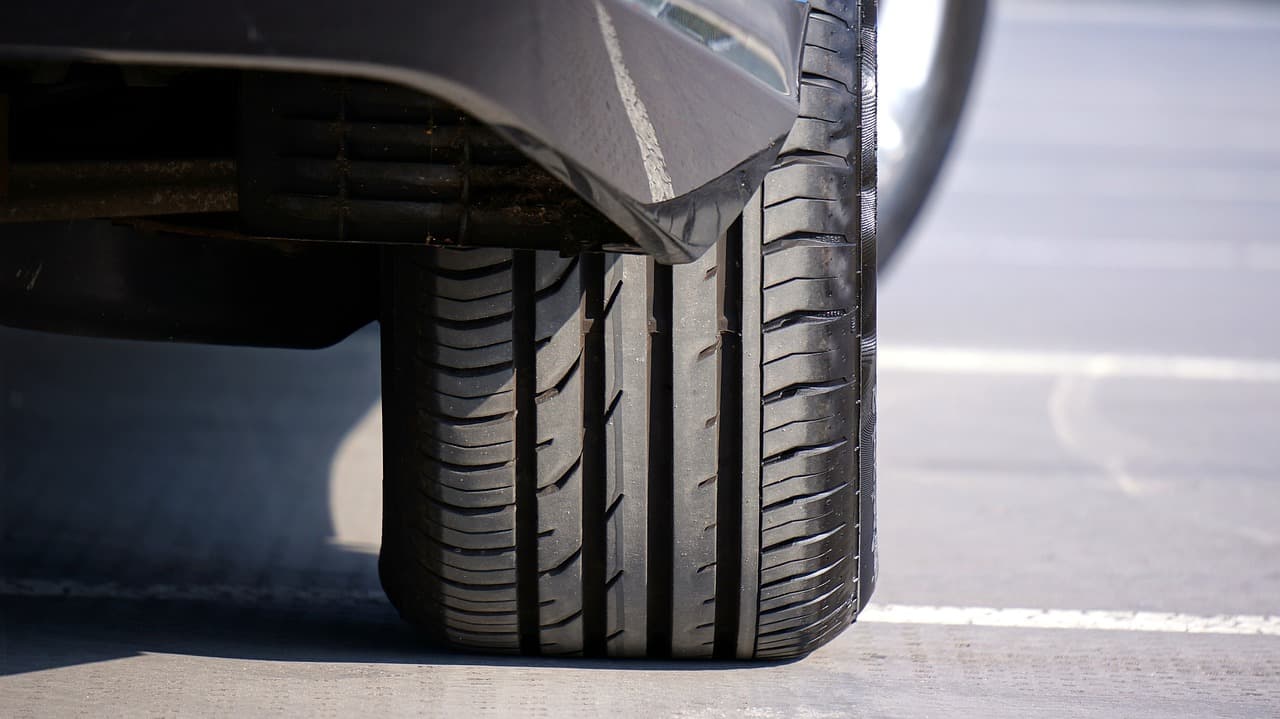Table of Contents
- What are the possible causes of tires squealing when turning at low speed?
- How can you tell if it’s a problem with your tires or something else?
- What should you do if you suspect that your tires are causing the noise?
- Are there any long-term solutions to this problem, and what will they cost you in terms of time and money?
- If you’re experiencing this issue, is it best to take your car to a mechanic or try to fix it yourself?
- Conclusion
- Frequently Asked Questions
- What causes tires to squeal when turning at low speed?
- Is it dangerous if my tires squeal when turning at low speed?
- How do I fix tires that squeal when turning at low speed?
- What are some common causes of tires squealing when turning at low speed?
- Can I prevent my tires from squealing when turning at low speed?
- How often should I check my tires for signs of wear and tear?
- What are some other signs that my tires need to get replaced?
- What should I do if I hear my tires squealing when turning at low speed?
Home » Why do Tire Squeal When Turning at Low Speed?

Getting ready to go for a drive
If you notice your tires squealing when you turn at low speed, it could be because of a few different things. But they aren’t all terrible; in all honesty, some can be easily fixed( so don’t worry too much). It could be something as simple as low tire pressure or a more serious issue like a problem with your suspension. Keep reading to learn more about the possible causes of this issue.
What are the possible causes of tires squealing when turning at low speed?
Incorrect tire pressure is one potential cause of tires squealing when turning at low speeds. If the tire pressure is too low, it can cause the tires to flex excessively, which in turn can lead to squealing. The opposite is true, because if your tires have too high of a PSI they can also squeal when turned. So you want to ensure that your tire pressure is within the specifications.
Another possible cause is a misalignment of the wheels. It can cause the tires to scrub against the pavement, leading to squealing. Finally, worn brakes can also be a factor.
How can you tell if it’s a problem with your tires or something else?
There are a few things to remember when determining whether a car’s problem is due to the tires or something else. First, consider the type of problem you are experiencing. If you have difficulty steering or maintaining control of the vehicle, the problem is likely with the tires. Another common symptom of tire problems is uneven wear on the tread.Tire wearing unevenly
If you notice that one side of the tread is more worn down than the other, it could mean that the tire is not inflated properly or aligned correctly. The last thing you want to pay attention to are any strange noises coming from the tires. If you hear a squeaking or grinding sound, it could signify that the tread is wearing down and needs to be changed. By keeping these things in mind, you can more easily identify whether a problem with your car is due to the tires or something else.
What should you do if you suspect that your tires are causing the noise?
If you notice that your vehicle’s tires are making noise, it is important not to delay figuring out the issue. Tires can wear down for several reasons, and if left unchecked, they can cause severe damage to your car. Tires are LITERALLY the thing that keeps your car going on the road. There are very few things that cars have that are as important as tires, so please don’t delay in keeping your tires in good shape.
The first step is to identify the source of the noise. If you notice the noise coming from one particular tire, inspect it for signs of wear and tear.
If you see cracks in the sidewall, the tire could be damaged and needs to get replaced. Noises coming from the tires mean you should check the pressure to see if it is the right PSI. If not, raise them to the correct pressure and see if the noise disappears.
Sadly, sounds coming from your tires won’t provide any error codes from your car, so you will have to check a couple different places to try to find the cause. But don’t worry, we have all the info you need here!
Are there any long-term solutions to this problem, and what will they cost you in terms of time and money?
There are a few possible long-term solutions to tires squealing when turning at low speeds. One solution is to adjust the tire pressure. If your tire pressure isn’t correct, your tires will wear out earlier, which will end up costing you more money. So, if you keep your tires inflated at the right level, you will not only be safer while you drive but save money in the long term.
A final solution is replacing the brake pads if worn down. New brake pads will provide more friction and stop the wheels more effectively, preventing them from skidding and causing the noise. These solutions will likely cost you time and money, but they are necessary to keep your car running smoothly.
If you’re experiencing this issue, is it best to take your car to a mechanic or try to fix it yourself?
When your car breaks down, you have to decide whether to take it to a mechanic or try to fix it yourself. If you don’t have experience with car repairs, it’s best to take it to a mechanic. The issues that we went over in this article pretty much come down to having your tires inflated to the right psi, making sure your tires arent too old and failing, and making sure your breaks are in good shape. These aren’t super hard jobs; at the very least, you can check on them before going to the mechanics to get an idea of where the issue is coming from.

Mechanics have the tools and expertise to diagnose and fix the problem quickly, so if you just want it fixed as quickly as possible just take it to your mechanic. However, if you have experience with car repairs and have the time and patience to figure out what’s wrong, you can save money by fixing it yourself. However, it’s best if some problems are left to the professionals. If you’re unsure whether you can fix the problem, it’s always better to err on the side of caution and take your car to a mechanic.
Conclusion
If your tires are squealing when you turn at low speed, it could be caused by several factors which we’ve gone over in this article. If there is one thing that you can take from reading our guide it’s that if your tires are squealing all the time, it isn’t a good sign, and you should figure out the cause as quickly as you can. You will be safer and possibly save money… so why not, right?
Frequently Asked Questions
What causes tires to squeal when turning at low speed?
One possibility is that they are not inflated correctly, so you should check the pressure and see if that fixes the problem. Another case is that there is something wrong with the suspension or alignment, which means you should take your car to a mechanic for further diagnosis and repairs.
Is it dangerous if my tires squeal when turning at low speed?
If your tires squeal when you turn them at low speed, it could be dangerous. It is because it could mean that the tires are not inflated correctly or that there is something wrong with the suspension or alignment. Either way, taking your car to a mechanic for further diagnosis and repairs is best.
How do I fix tires that squeal when turning at low speed?
If your tires squeal when you turn them at low speed, they might be under-inflated, or there might be something wrong with the suspension or alignment. You can try to fix the problem yourself, but it’s best to take your car to a mechanic if you’re unsure what’s wrong.
What are some common causes of tires squealing when turning at low speed?
There can be a few reasons your tires squeal when you turn them at low speed. One possibility is that they are not inflated correctly, so you should check the pressure and see if that fixes the problem. Another case is that something is wrong with the suspension or alignment, so you should take your car to a mechanic for further diagnosis and repairs.
Can I prevent my tires from squealing when turning at low speed?
There are a few things you can do to try to prevent your tires from squealing when you turn them at low speed. One possibility is that you can ensure the pressure in your tires is correct. Another possibility is having a mechanic check your car’s suspension and alignment to see if anything is wrong.
How often should I check my tires for signs of wear and tear?
You should check your tires for signs of wear and tear often. This way, you can fix any problems before they become too serious.
What are some other signs that my tires need to get replaced?
There are other signs that your tires might need to get replaced. For example, if you see worn down or damaged, you should replace them. You should also replace your tires if they don’t have enough tread left on them.
What should I do if I hear my tires squealing when turning at low speed?
If you hear your tires squealing when turning at low speed, they might be under-inflated, or there might be something wrong with the suspension or alignment. You can try to fix the problem yourself, but it’s best to take your car to a mechanic if you’re unsure what’s wrong.

